5.
Around that time I began to think that if I wasn’t beautiful physically maybe I could be beautiful spiritually. But how? I had by now discovered that I didn’t have a good character, I inclined to malicious words and actions. If I had good qualities, I was suppressing them, deliberately, in order not to feel that I was a pathetic girl from a good family. Now I had the impression that I had found the path to my salvation but didn’t know how to take it and maybe didn’t deserve it.
I was in that state when, one afternoon, completely by chance, I ran into Don Giacomo, the priest from Pascone. I was in Piazza Vanvitelli, I no longer remember why, I was walking along, thinking of my own affairs, and almost bumped into him. Giannina, he exclaimed. Finding him there cancelled out for a few seconds the square, the buildings, and threw me again into the church, sitting beside Vittoria, Roberto standing behind the table. When everything returned to its place, I was glad that the priest had recognized me and remembered my name. It made me so happy that I hugged him as if he were a friend from elementary school. Then I started to feel intimidated, I began to stammer and addressed him with the formal lei , but he insisted on the informal tu . He was going to take the Montesanto funicular, I offered to walk with him and immediately went on, too gaily, to declare my enthusiasm for the experience I’d had in the church.
“When will Roberto come back to speak?” I asked.
“Did you like his talk?”
“Yes.”
“Did you notice how much he manages to pull out from the Gospel?”
I didn’t remember anything—what did I know about the Gospels—only Roberto had remained stamped in my mind. But I nodded just the same, I said:
“No teacher in school is absorbing the way he is, I’d come to hear him again.”
The priest darkened, and only at that point I realized that, although he was the same person, something in his aspect had changed: he had a yellowish complexion, his eyes had reddened.
“Roberto won’t be back,” he said, “and in church there won’t be any more initiatives of that type.”
I was really upset.
“Didn’t people like them?”
“My superiors and some of the parishioners didn’t.”
Now I was disappointed and angry, I said:
“Isn’t your superior God?”
“Yes, but it’s his lieutenants who call the shots.”
“So you address him directly.”
Don Giacomo made a gesture with his hand as if to signal an indeterminate distance, and I realized that on his fingers, on the back of his hand, and even on his wrist he had broad violet stains.
“God is outside,” he said smiling.
“And prayer?”
“I’m worn out, apparently by now prayer is my trade. What about you? Have you been praying, even if you don’t believe in it?”
“Yes.”
“And did it help?”
“No, it’s a magic that ultimately isn’t successful.”
Don Giacomo was silent. I realized I had said something wrong, I wanted to apologize.
“Sometimes I say everything that goes through my head,” I muttered. “I’m sorry.”
“For what? You’ve brightened my day, lucky I ran into you.”
He looked at his right hand as if it hid a secret.
“Are you ill?” I asked.
“I’ve just been to a doctor friend here on Via Kerbaker, it’s only a rash.”
“What causes it?”
“When you’re made to do things you don’t want to and you obey, it works on your mind, it works on everything.”
“Obedience is a skin disease?”
He looked at me for a moment in bewilderment, he smiled.
“Good for you, it’s exactly that, a skin disease. And you are a good cure, don’t change, always say what comes to your mind. A little more conversation with you and I bet I’ll improve.”
I said impulsively:
“I want to improve, too. What should I do?”
The priest answered:
“Drive out pride, which is always lurking.”
“And then?”
“Treat others with kindness and a sense of fairness.”
“And then?”
“Then the thing that at your age is most difficult: honor your father and mother. But you have to try, Giannì, it’s important.”
“My father and mother I don’t understand anymore.”
“When you grow up you’ll understand them.”
They all said I would understand when I grew up. I answered:
“Then I won’t grow up.”
We said goodbye at the funicular, and I haven’t seen him since. I didn’t dare ask about Roberto, I didn’t ask if Vittoria had talked about me, if she had told him what had happened in my house. I said only, ashamed of myself:
“I feel ugly, like I’m a bad person, and yet I’d like to be loved.”
But I said it too late, in a whisper, when he had already turned away.
6.
That encounter helped me, and I tried first of all to change my relationship with my parents. Honoring them was out of the question, but maybe, yes, I could at least look for ways to get a little closer to them.
With my mother things started out pretty well, even though it wasn’t easy to get my aggressive tone under control. I never talked to her about the phone call she had made to Vittoria, but every so often I’d yell orders, rebukes, recriminations, betrayals. As usual, she didn’t react, she remained impassive, as if she had the ability to become deaf on command. But slowly I modified my attitude. I observed her from the hall, carefully dressed, with her hair combed, even when she didn’t have to go out and no one was coming, and the sight of her bony back, of a person consumed by suffering, bent for hours over her work, softened me. One night, spying on her, I likened her to my aunt. No question they were enemies, no question in terms of upbringing and cultivation there was no comparison. But hadn’t Vittoria remained bound to Enzo even though he’d been dead for so long? And hadn’t her faithfulness seemed to me a mark of greatness? I was suddenly surprised to think that my mother was showing an even nobler soul, and I reflected on that idea for hours.
Vittoria’s love had been returned, her lover had loved her always. My mother instead had been betrayed in the vilest way, and yet she had managed to hold on to her feeling intact. She was neither able nor willing to think of herself without her ex-husband, in fact it seemed to her that her life still had meaning only if my father deigned to be in touch by phone and bestow it. Her acquiescence suddenly began to appeal to me. How could I attack and insult her for that dependency? Was it possible that I had taken for weakness the strength—yes, the strength—of her way of loving absolutely?
Once I said to her in a matter-of-fact tone:
“Since you like Mariano, take him.”
“How many times do I have to tell you? Mariano is repulsive to me.”
“And Papa?”
“Papa is Papa.”
“Why don’t you ever say anything bad about him?”
“What I say is one thing and what I think is another.”
“You let yourself go in your thoughts?”
“A little, but then I end up going back to all the years when we were happy, and I forget I hate him.”
It seemed to me that that phrase— I forget I hate him —captured something true and alive, and that was precisely the way I tried to reconsider my father. I hardly ever saw him now, I didn’t go to the house in Posillipo, I had eliminated Angela and Ida from my life. And, however much I tried to understand why he had left my mother and me and had gone to live with Costanza and her daughters, I couldn’t. In the past I had considered him far superior to my mother, but now I felt he had no greatness of soul, even in a negative sense. The rare times he came by to take me to school I was very attentive to the way he complained, but only to repeat to myself that those complaints were false. He wanted to make me believe that he wasn’t happy or anyway that he was just slightly less unhappy than when he lived in the apartment on Via San Giacomo dei Capri. I didn’t believe him, naturally, but I studied him and thought: I have to put aside my feelings of the present, I have to think of when I was a child and adored him; because if Mamma continues to be attached to him in spite of everything, if she can reach the point where she forgets she hates him, maybe his exceptionality wasn’t only an effect of childhood. So I made a considerable effort to give him back some virtues. But not out of affection: it seemed to me that I had no feelings for him. I tried only to convince myself that my mother had loved a person of some substance, and so, when I saw him, I tried to be cordial. I talked to him about school, about some silliness involving the teachers, and even complimented him sometimes, on his explanation of a difficult passage from a Latin writer, say, or on his haircut.
Читать дальше

![Элена Ферранте - История о пропавшем ребенке [litres]](/books/32091/elena-ferrante-istoriya-o-propavshem-rebenke-litres-thumb.webp)
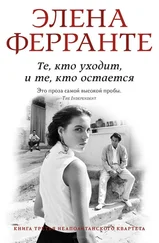
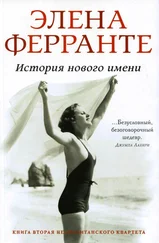
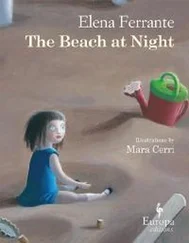
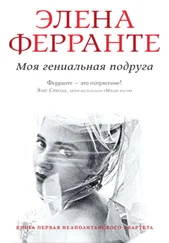
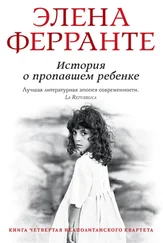
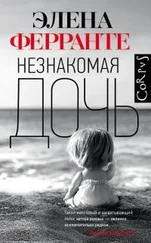
![Элена Ферранте - Дни одиночества [litres]](/books/404671/elena-ferrante-dni-odinochestva-litres-thumb.webp)



